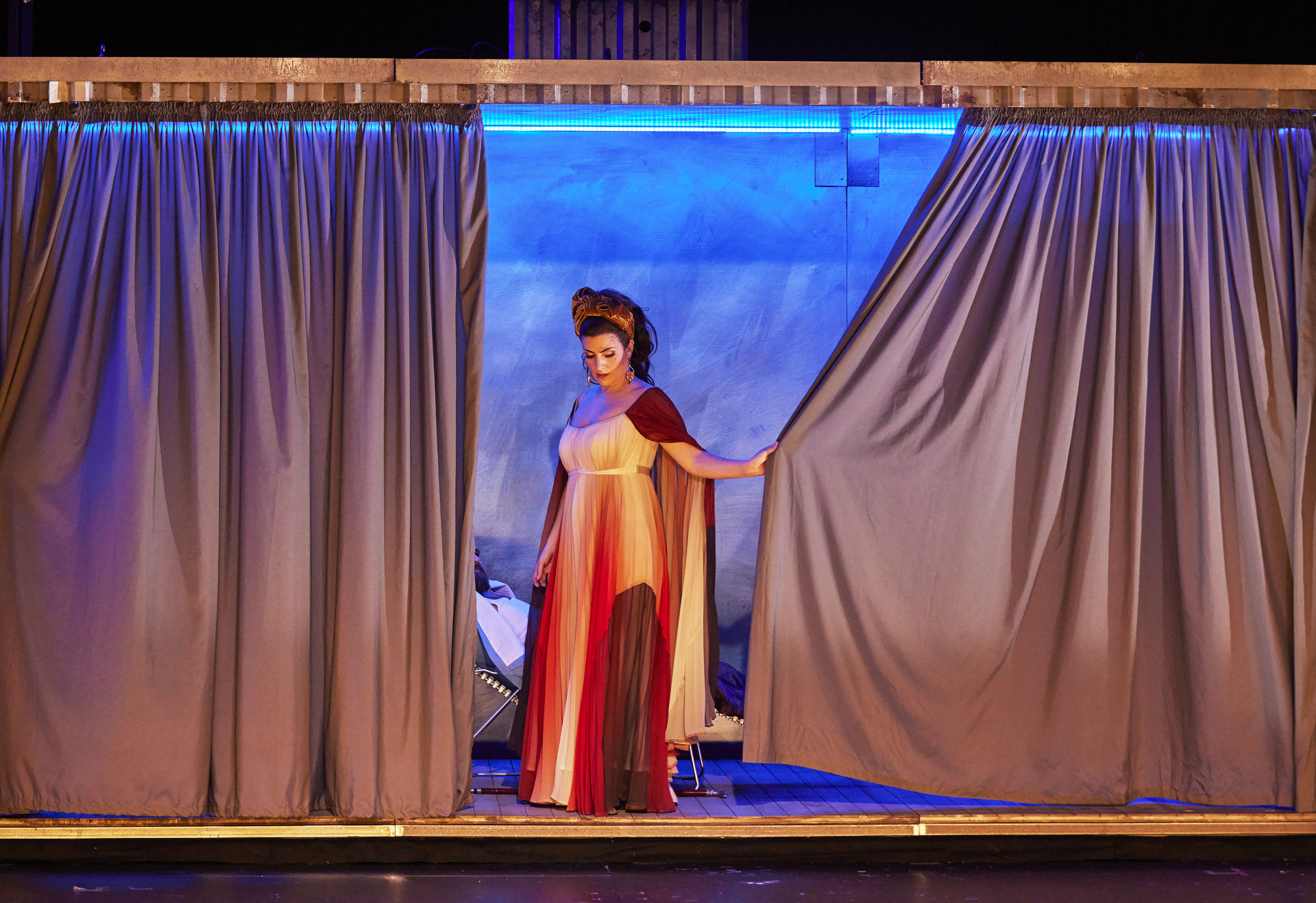The Makropulos Affair.
Opera by Leoš Janáček.
Mainfranken Theater Würzburg 2021/2022
Musical director Enrico Calesso
Stage director Nina Russi
Set and costume design Julia Katharina Berndt
Dramaturgy Berthold Warnecke
Emilia Marty Ilia Papandreou
Albert Gregor James Kee
Vitek Mathew Habib
Christa Akiho Tsujii
Jaroslaw Prus Kosma Ranuer
Janek Joshua Whitener
Dr. Kolenaty Michael Tews
Kammerzofe/Aufräumefrau Barbara Schöller
Hauk-Schendorf Yong Bae Shin
Theatermaschinist Taiyu Uchiyama
Philharmonisches Orchester Würzburg
Statisterie Mainfranken Theater Würzburg
Premiere 30 January 2022
Revival 22/23 24 June 2023
Revival 23/24 28 October 2023
Photos © Nik Schölzel
Video recording available on request
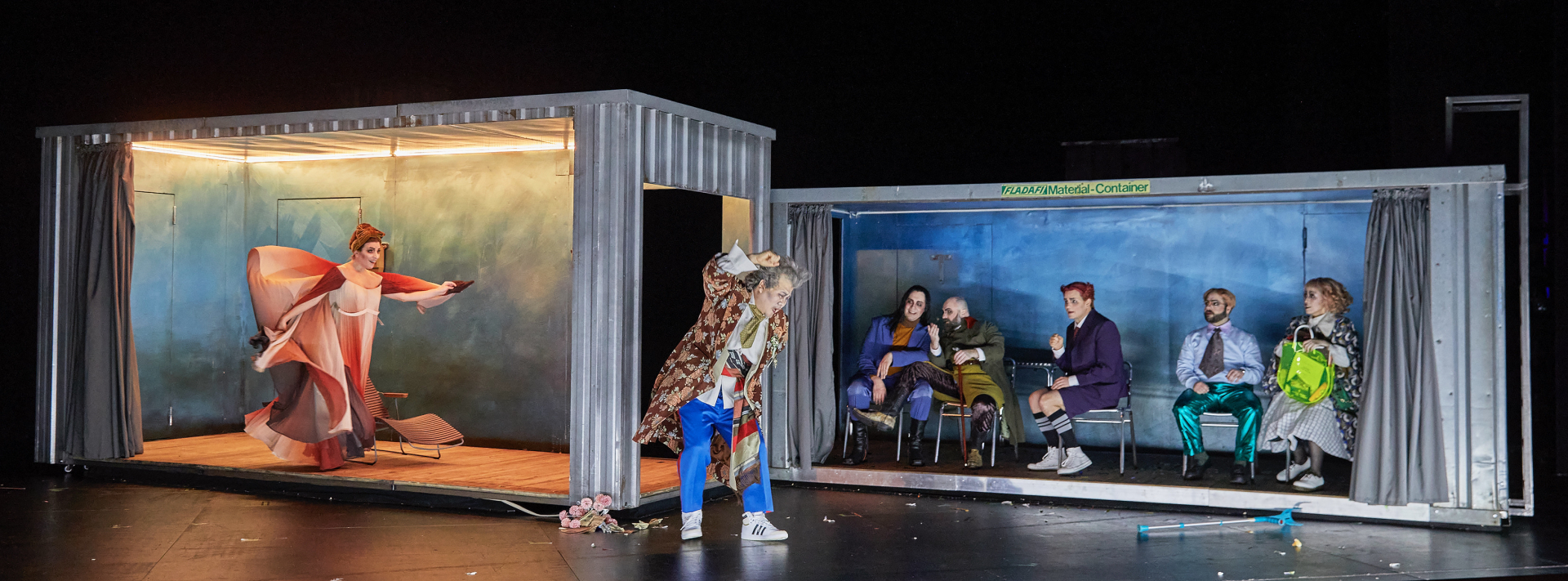

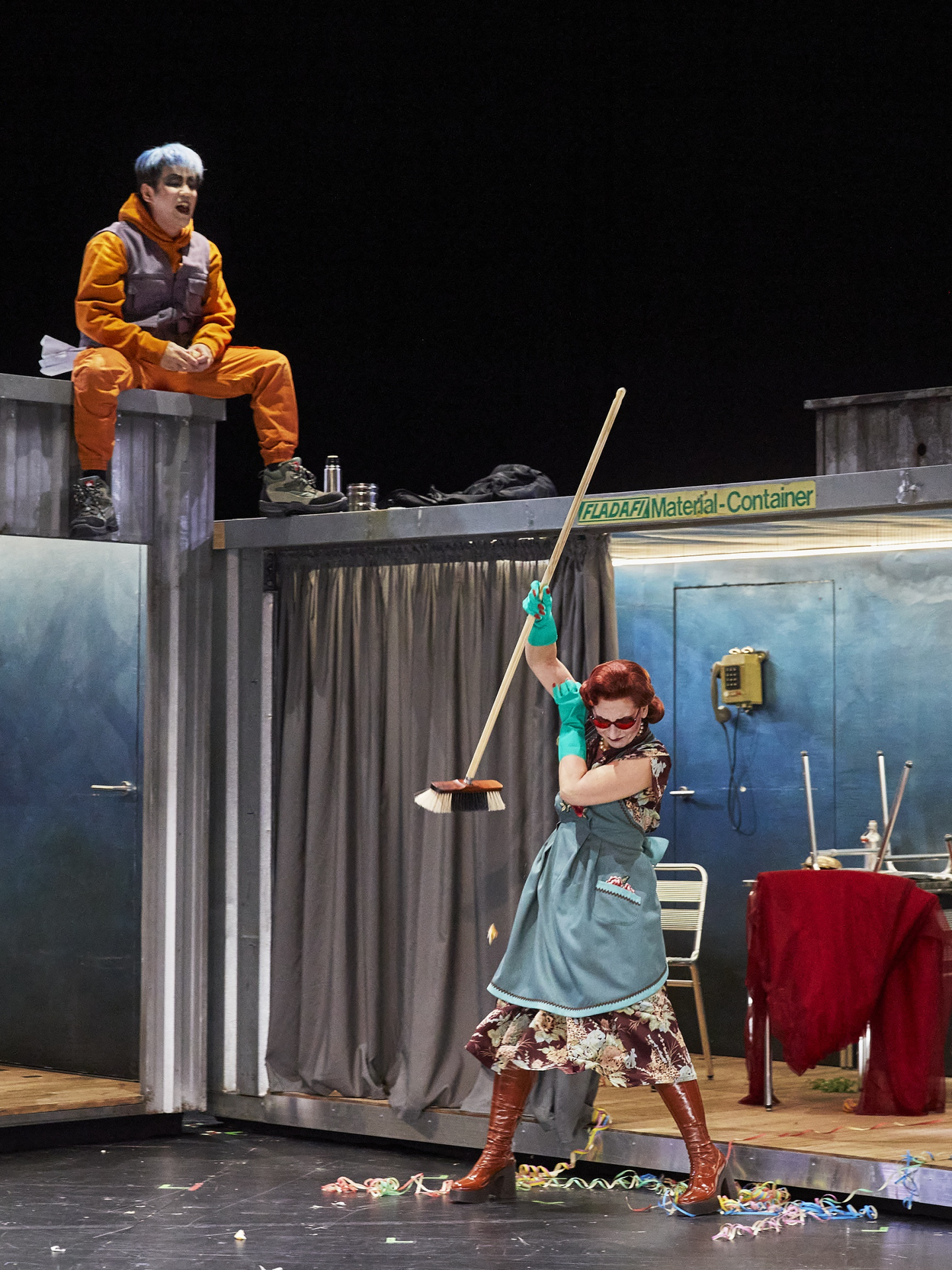
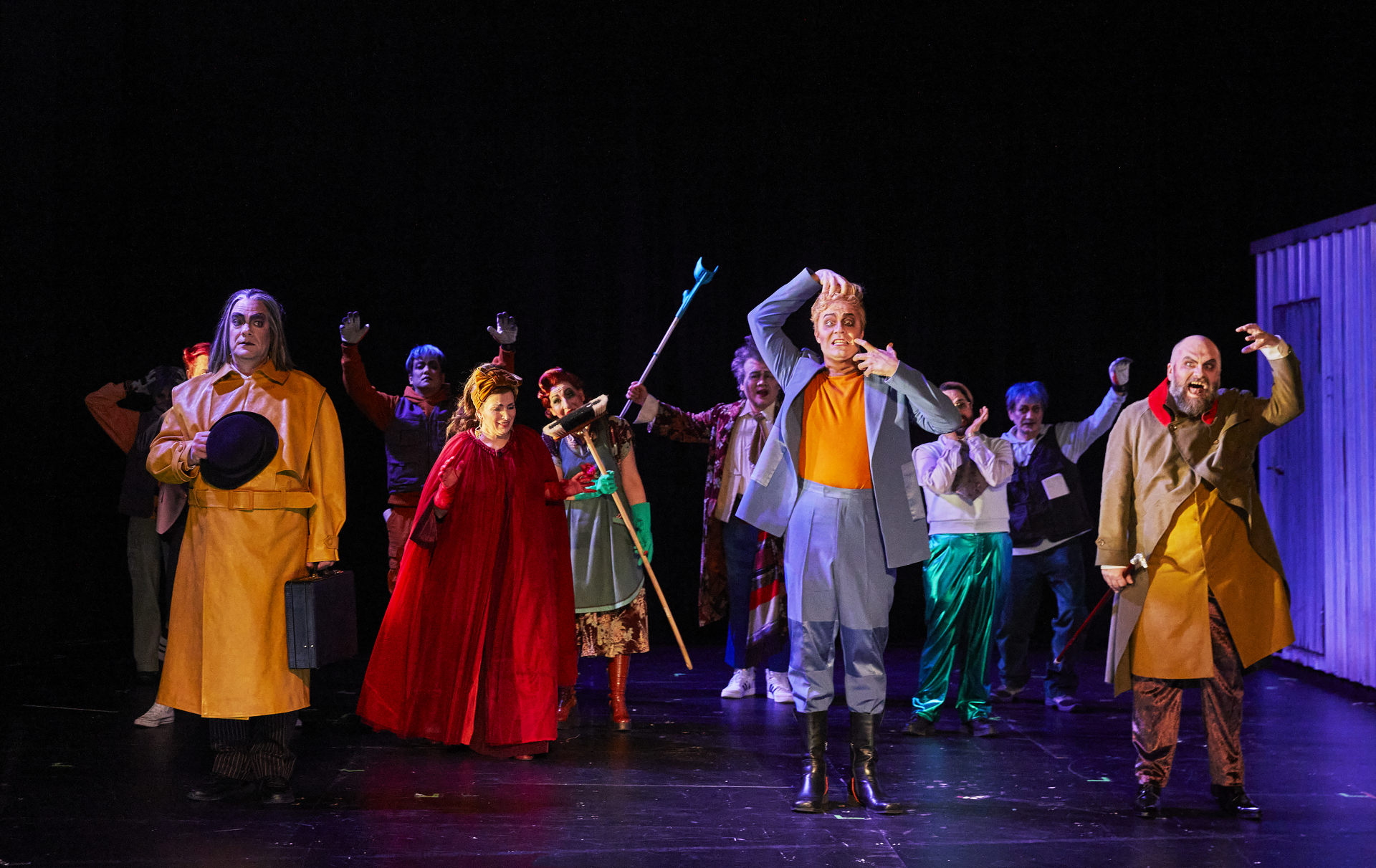

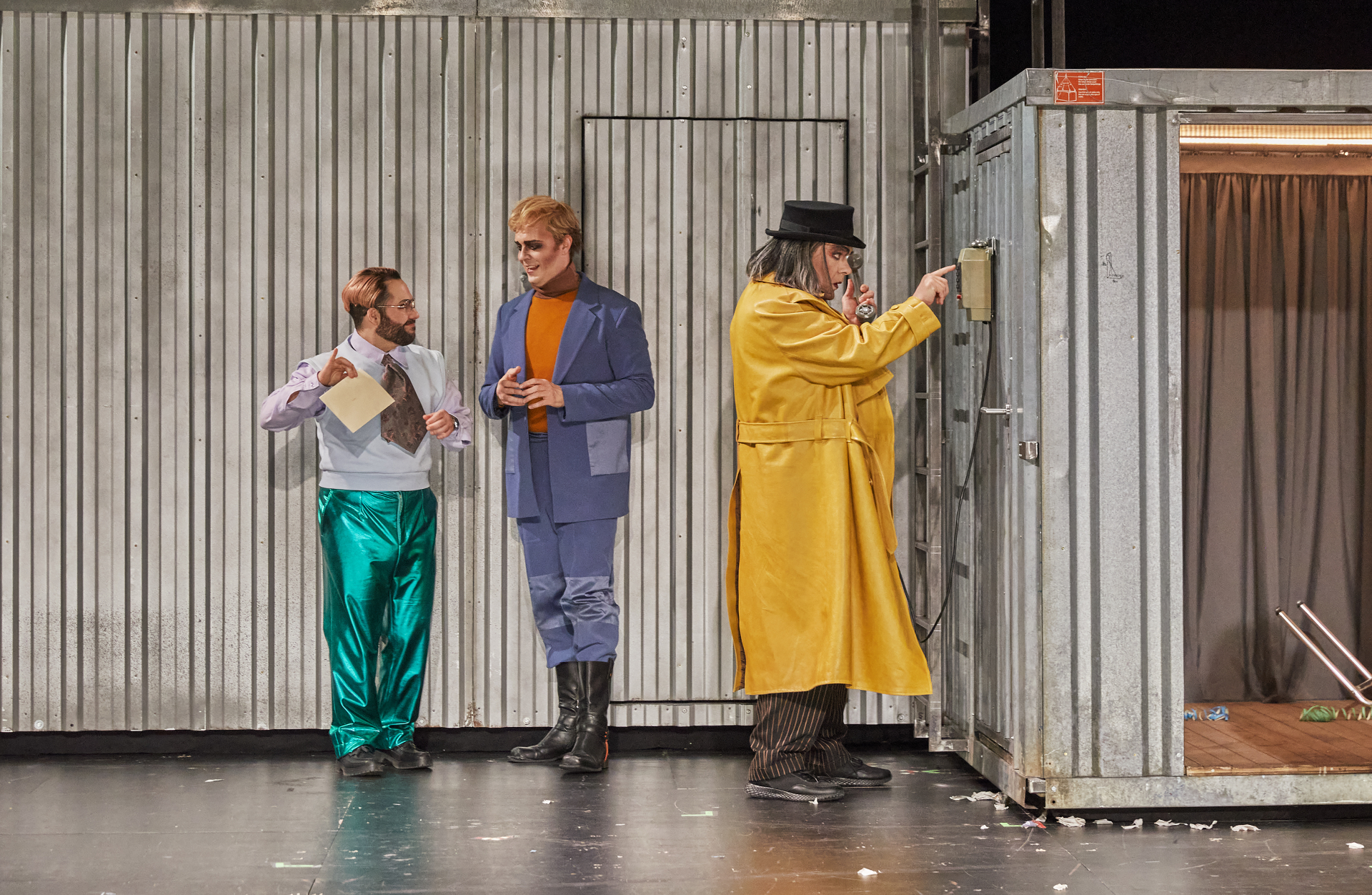
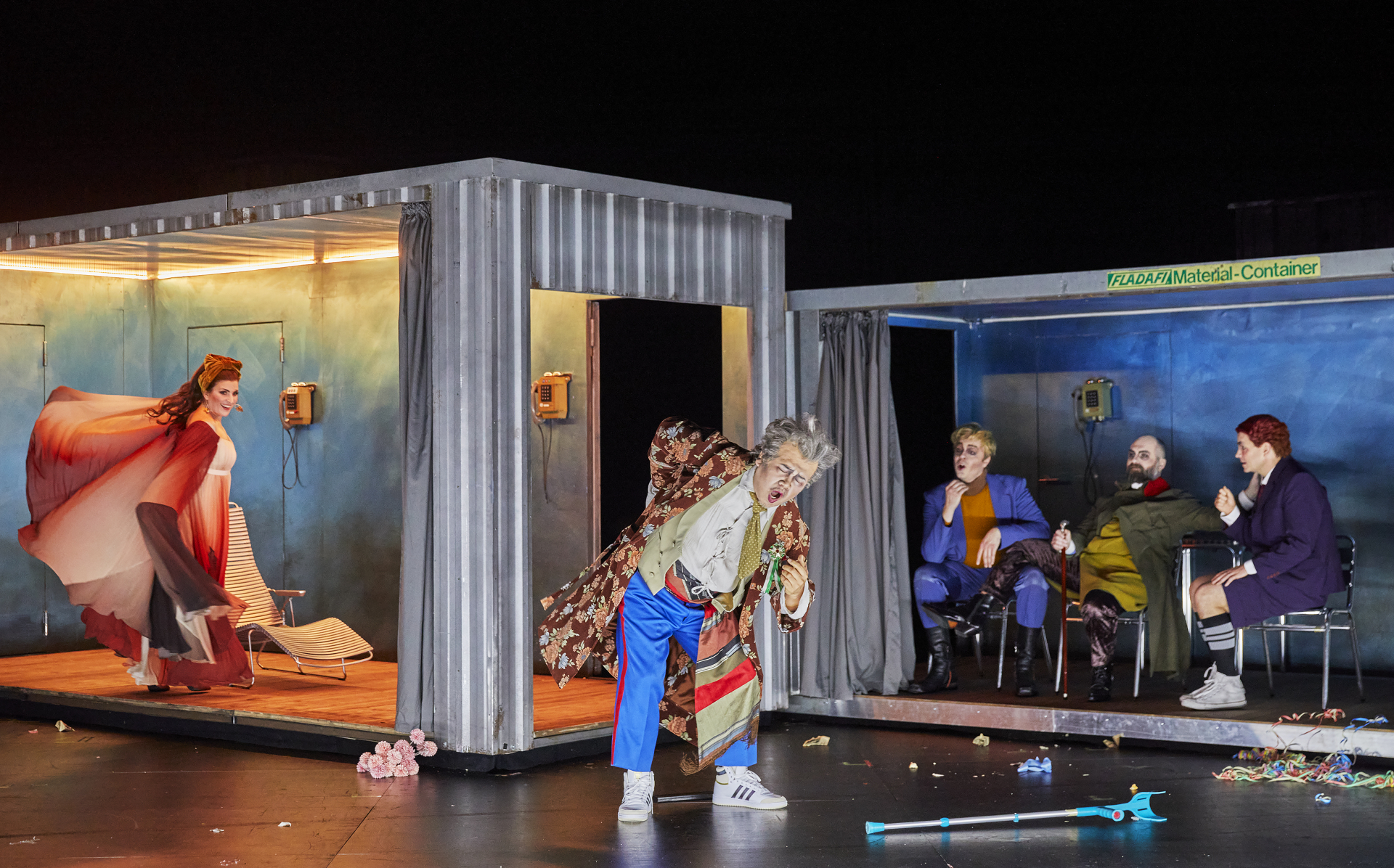
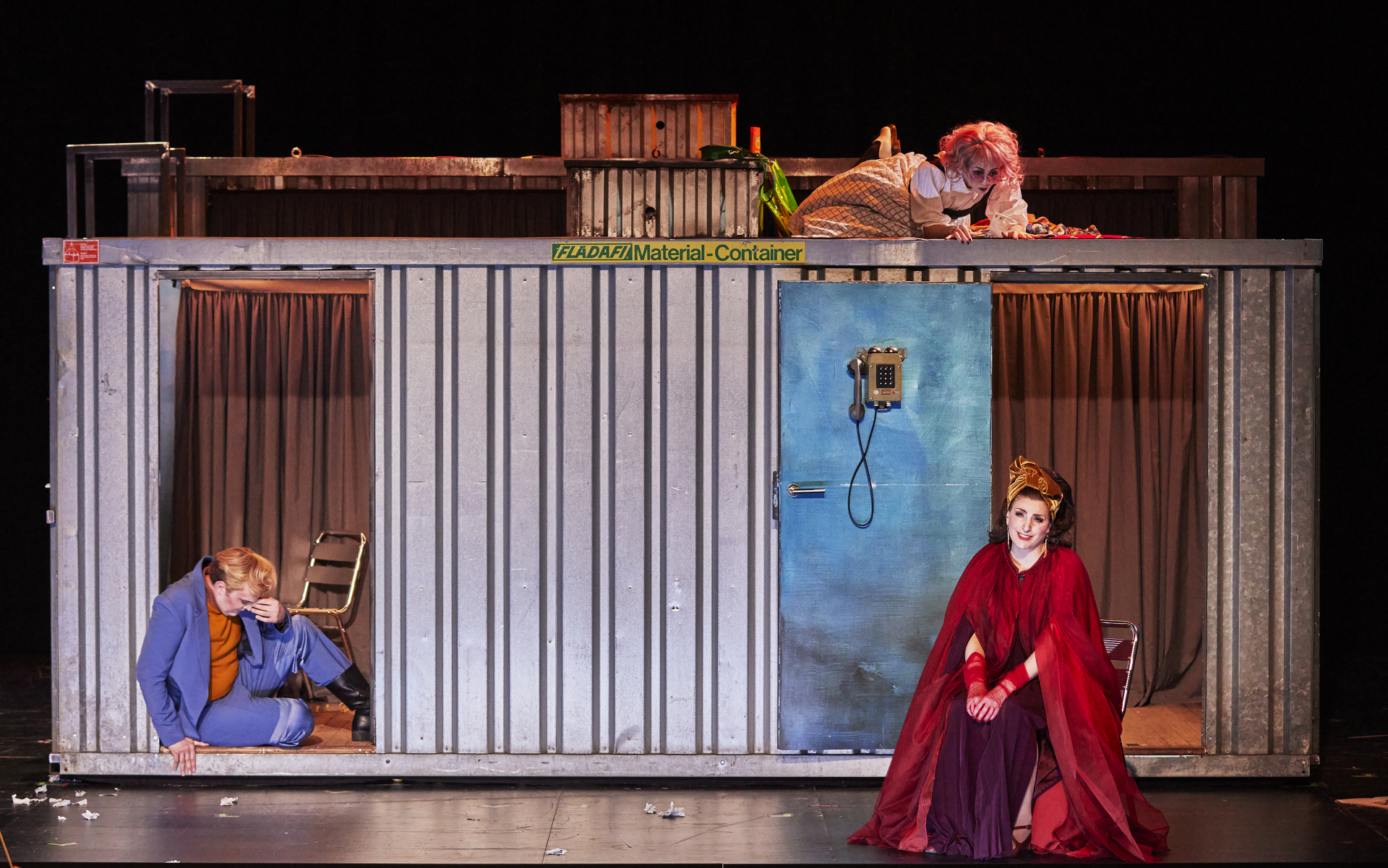
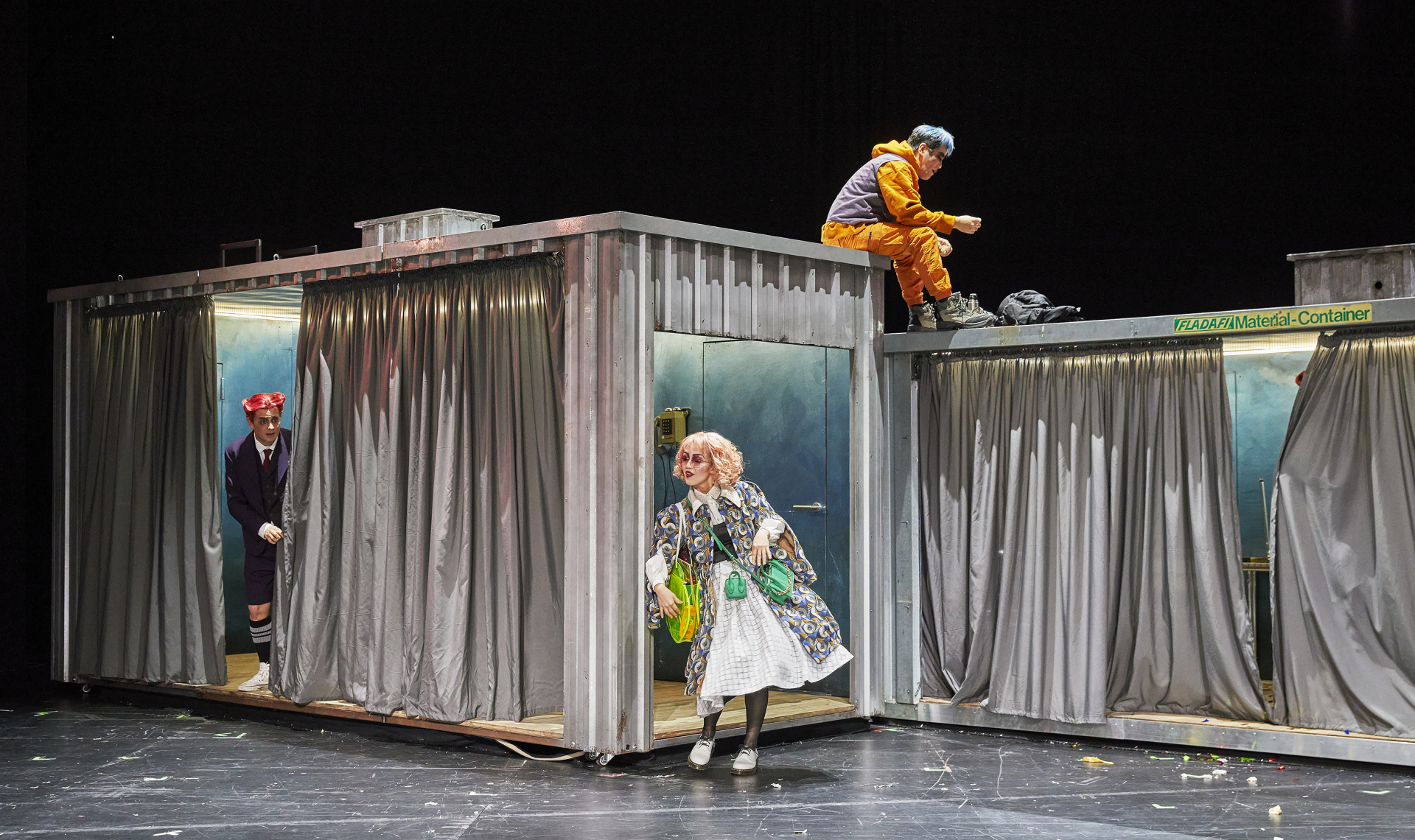
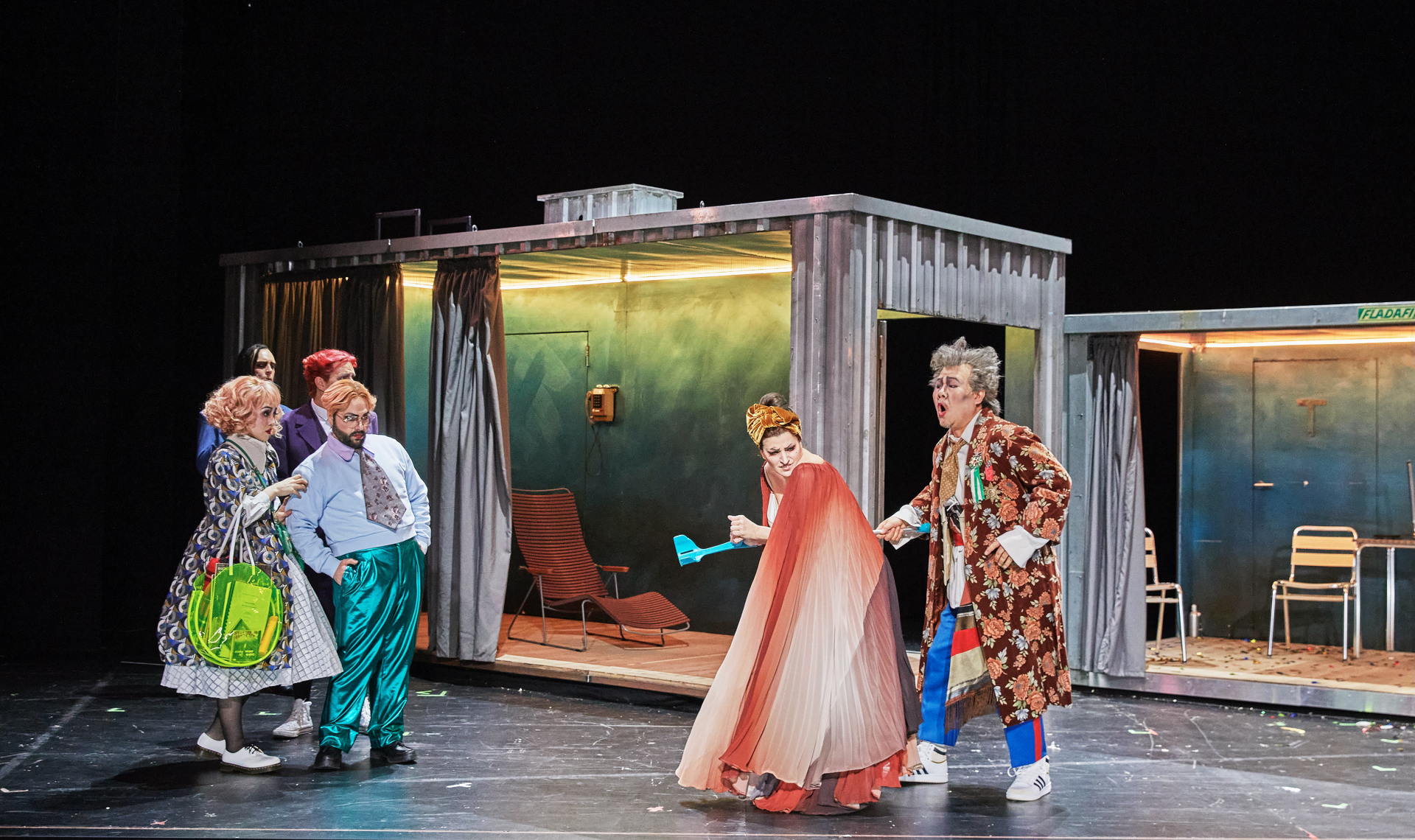
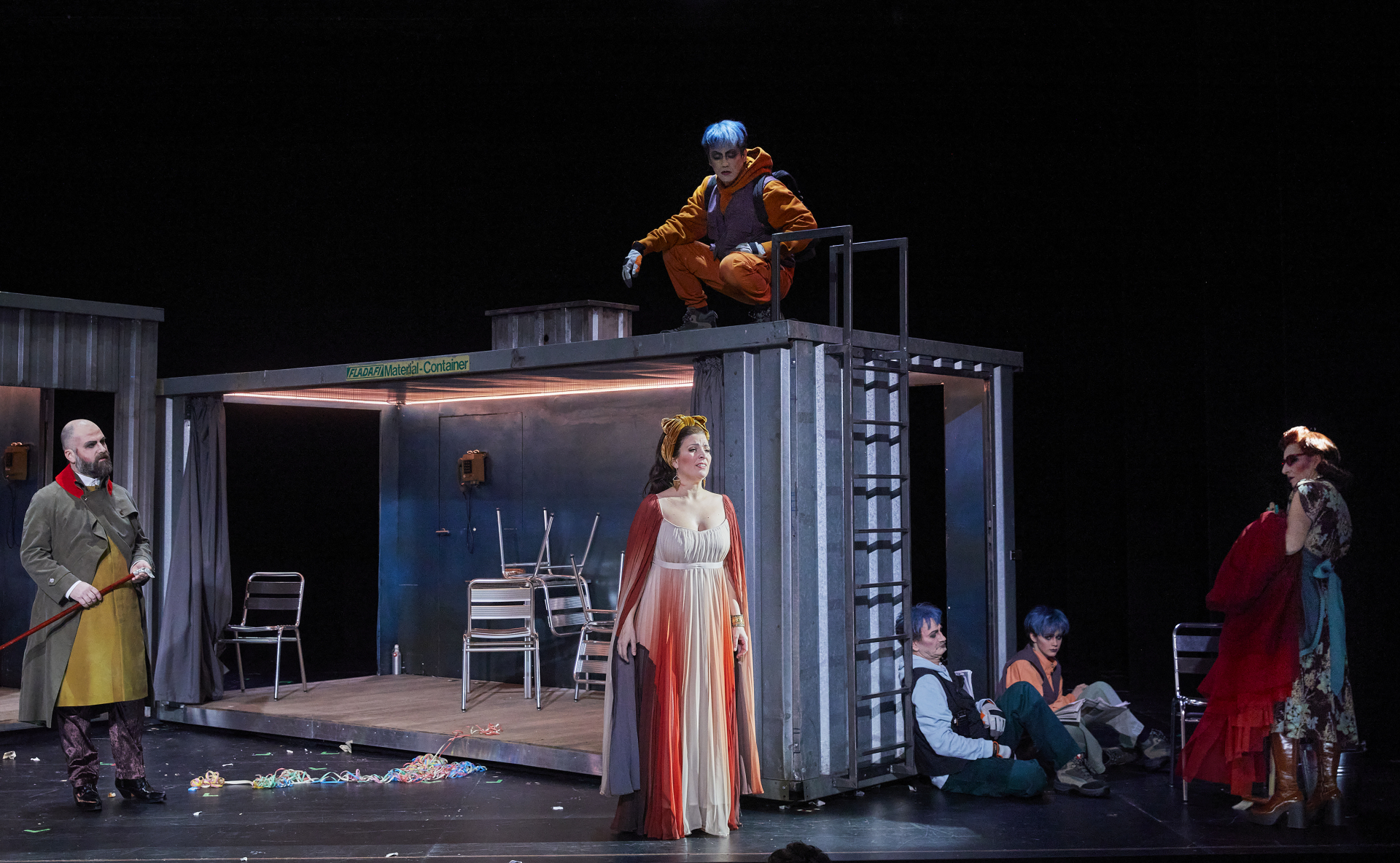

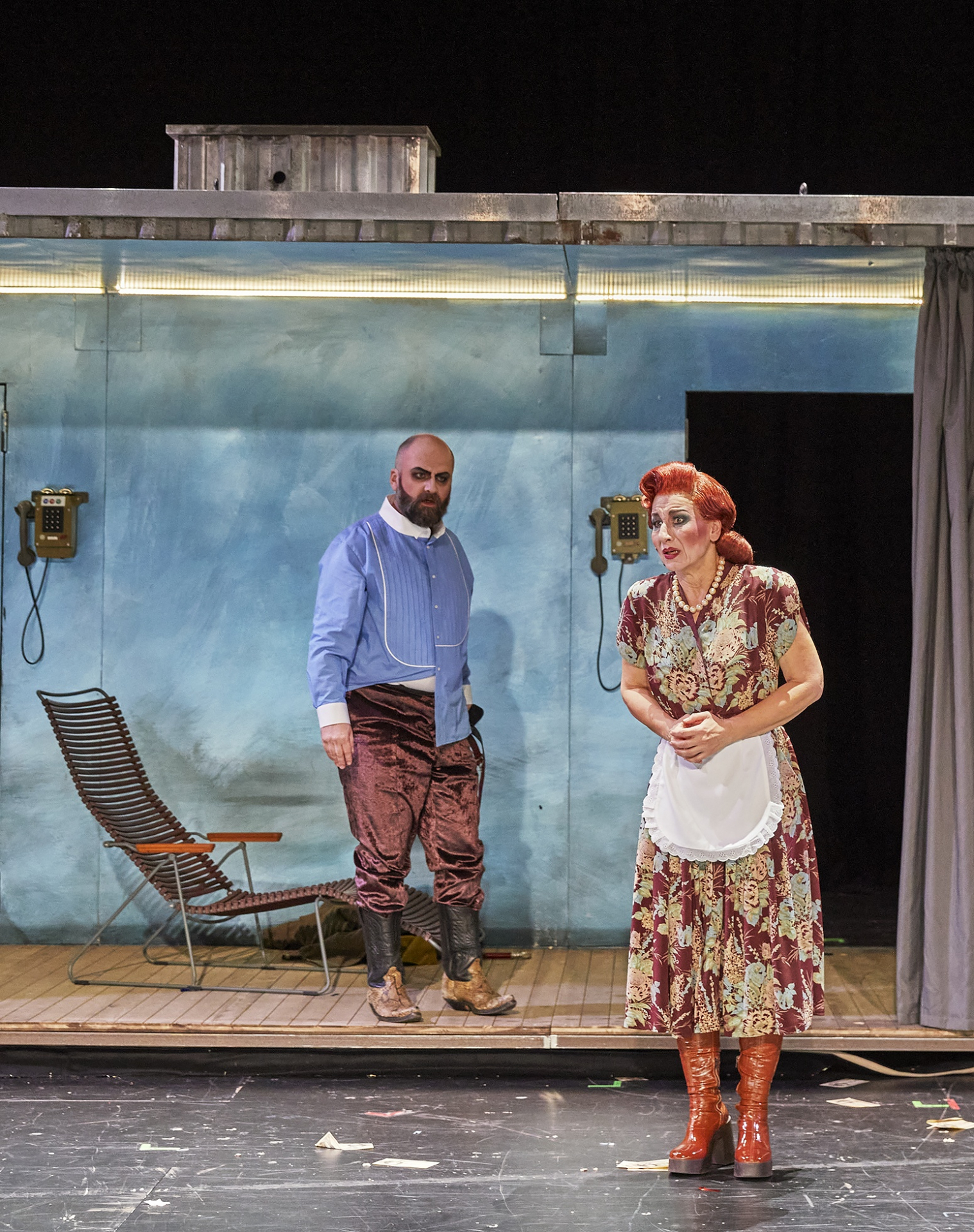
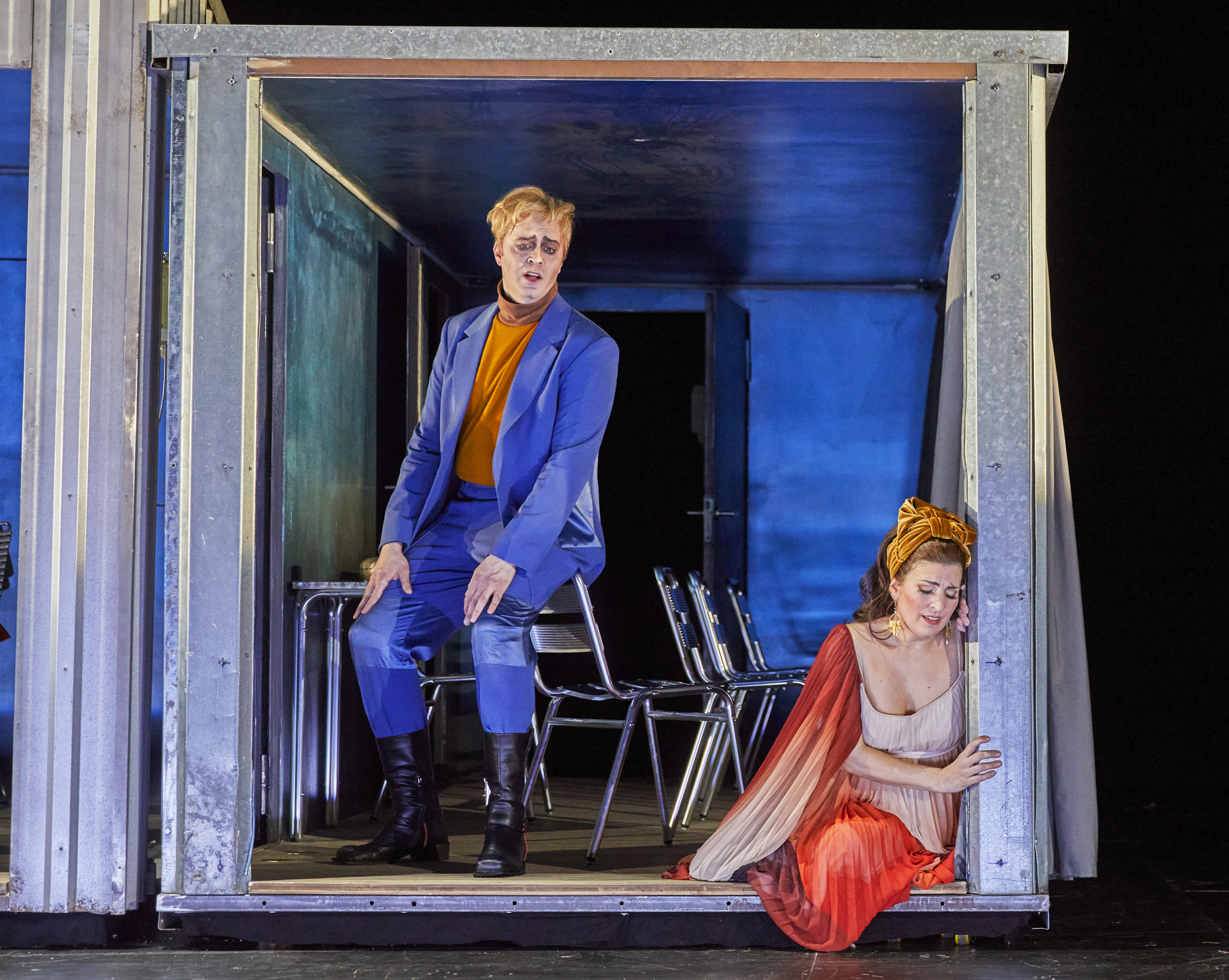

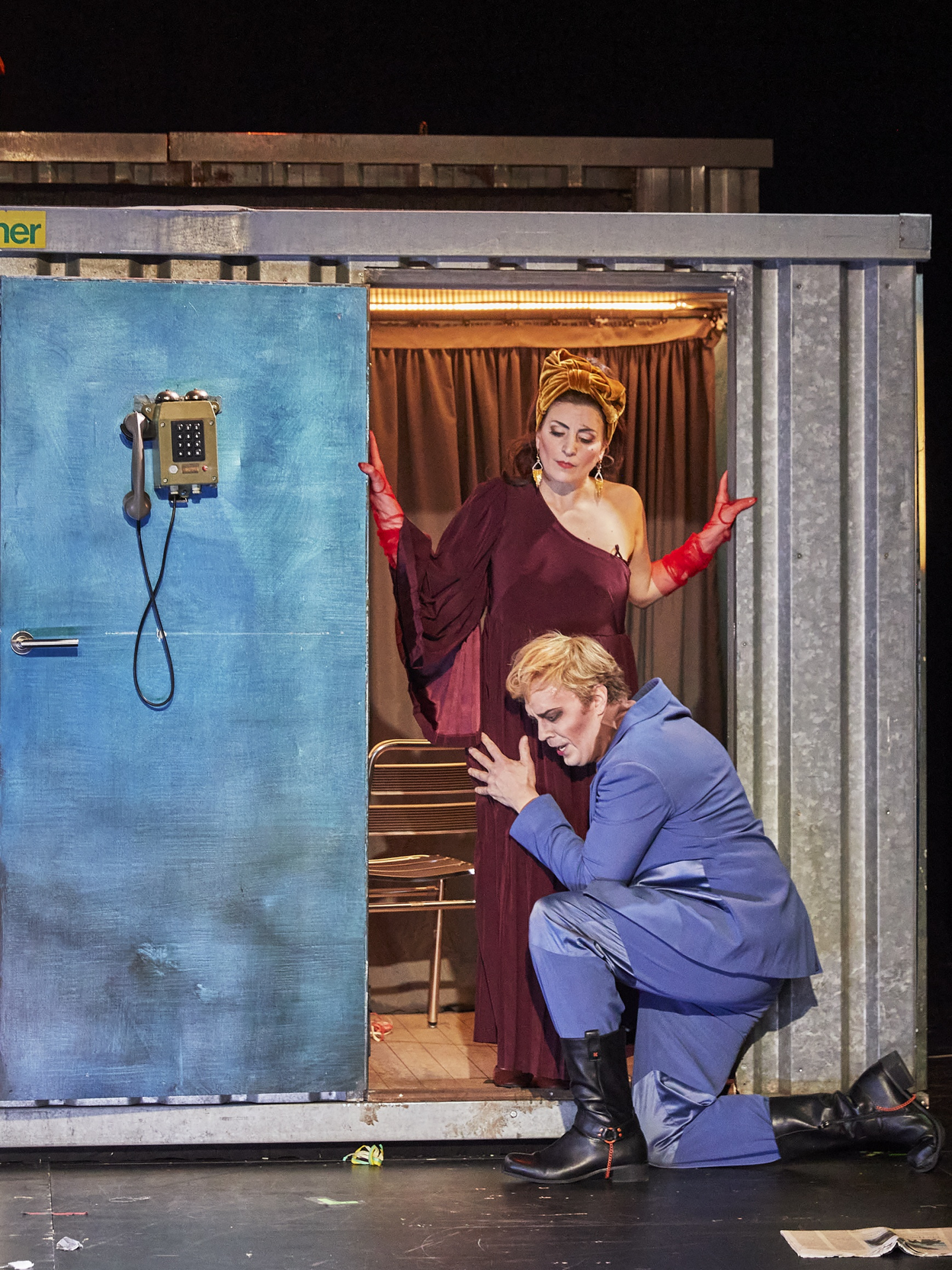
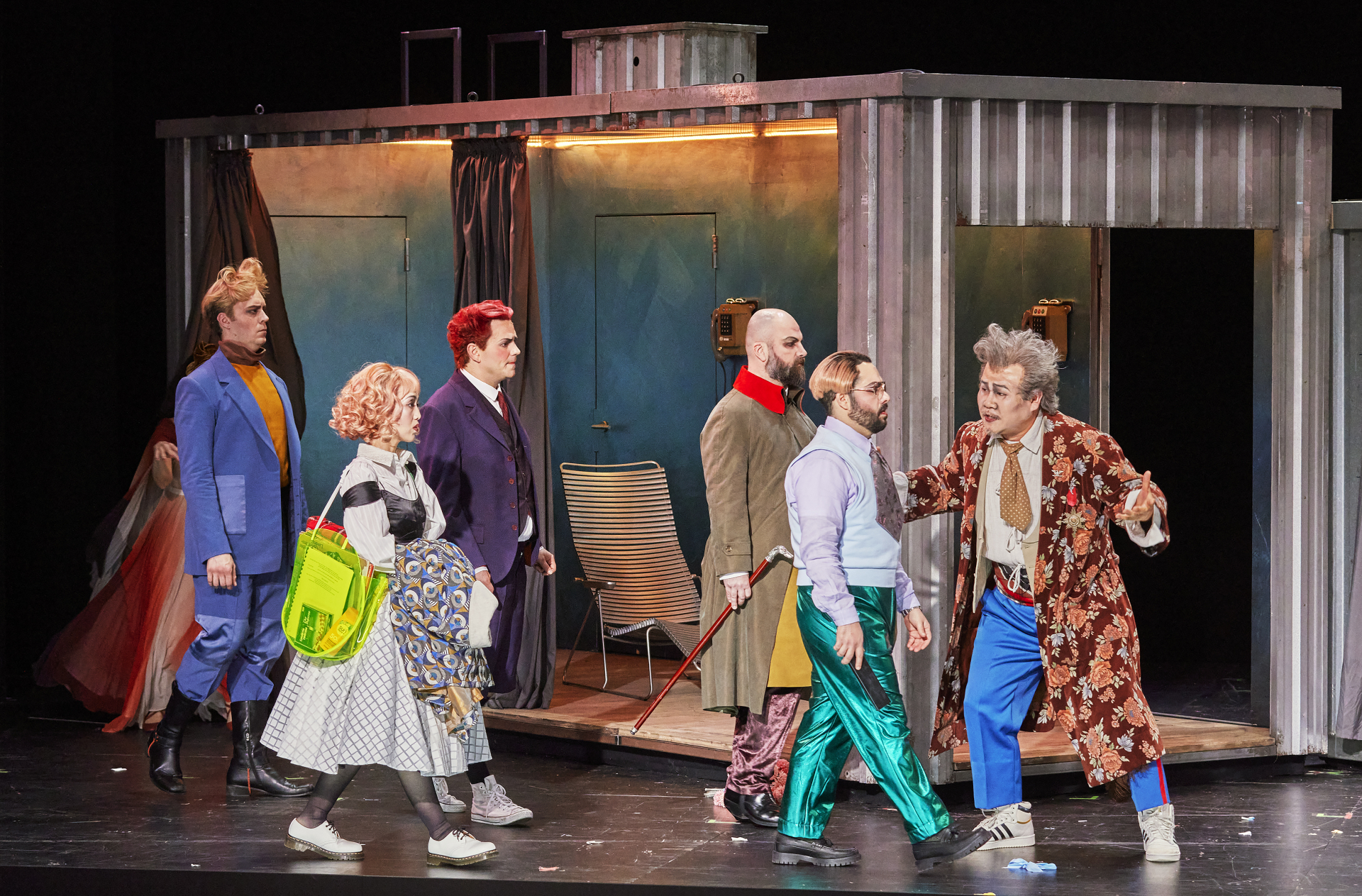
Press reviews
The curse of eternal life
Nina Russi's lively direction of the characters reveals the discrepancy between the vulnerable inner life of the protagonist, her outwardly displayed hardness, her dismissive attitude and the incomprehension of those around her; the latter takes part in her path of suffering and life with their own interests [...].
Thanks to the direction, the opera plot oscillates coherently between superficial science fiction and real human problems with the emphasis on existential questions, enigmatic and somehow still entertaining with a light hand. A plus here is the skillful drawing of the characters. [...]
The audience [...] celebrates the unusual, thought-provoking and also musically successful and highly demanding production for a long time, with many bravos as a plea for a fulfilled life.
O-Ton - Kulturmagazin, Renate Freyeisen
How an opera reconciles us with our mortality
Nina Russi (direction) and Julia Katharina Berndt (stage and costumes) have turned the circumstances upside down: The freak is not the 336-year-old diva, but it's everyone who buzzes around her.
Main Post, Mathias Wiedemann
In an unhoused enclosure: Janáček's opera "The Makropulos Affair", movingly disillusioned at the Mainfranken Theater Würzburg.
[To stage such a story] as an "eternal return of the same" or as a Kafkaesque process carousel [would lend itself...] also as a cliché. Nina Russi (direction) and Julia Katharina Berndt (stage) avoid this by relying on a more contemporary counterpart: a movable ensemble of industrial (living) containers, open to the front, as an unhoused enclosure for many kinds of placeless people. The file towers have mutated into metal rectangles, through curtains into stage boxes. As an image of hopelessly mechanical monotony, this is cogent, and is also appropriately transferred to Commedia stereotypes, to the point of comic caricature, even zombie association, not even inadequate to the endless process. [...] All in all, the performance conveys, tonally and scenically, unexpected perspectives on a demanding, enigmatic work.
Opernwelt, Gerhard R. Koch
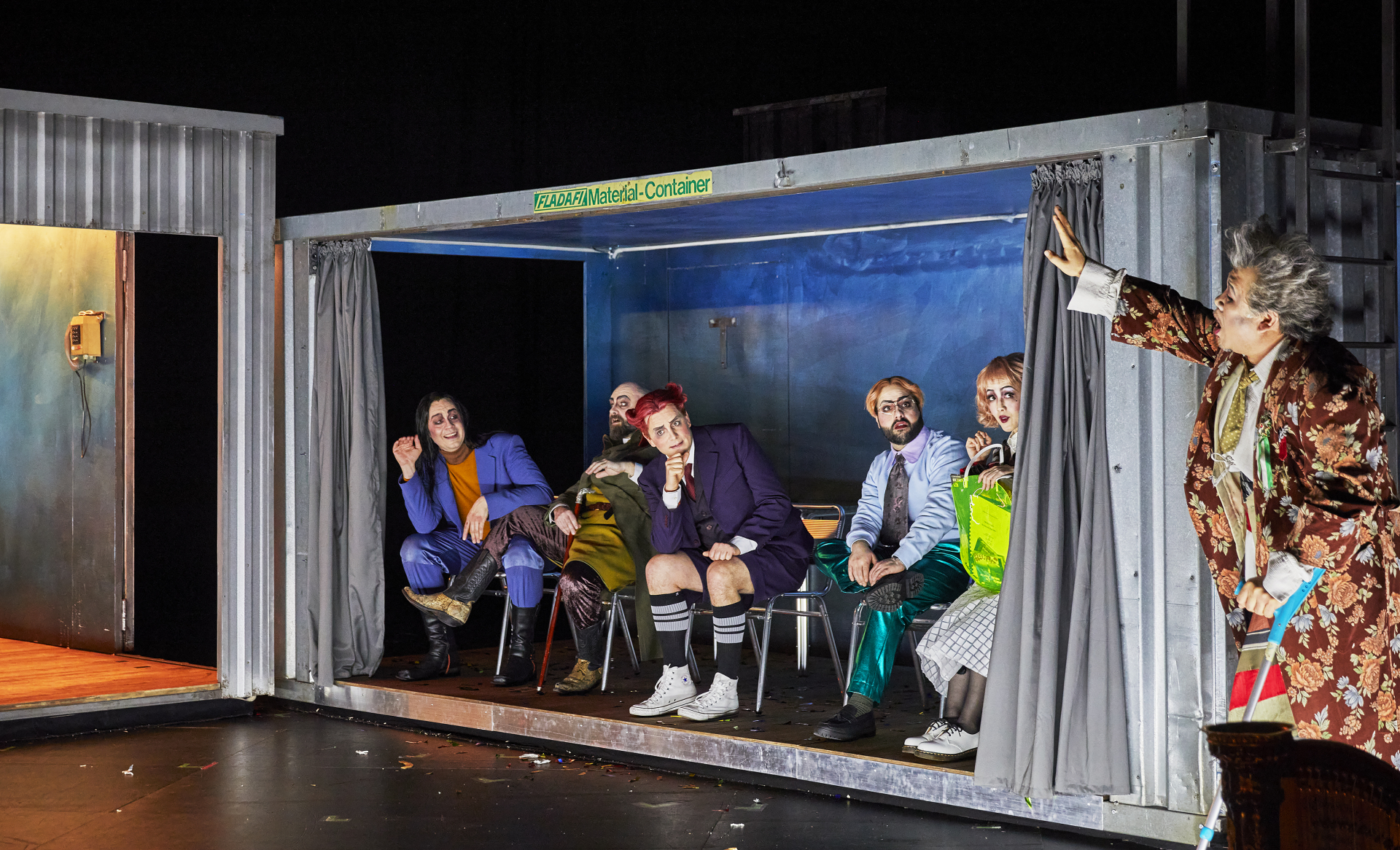

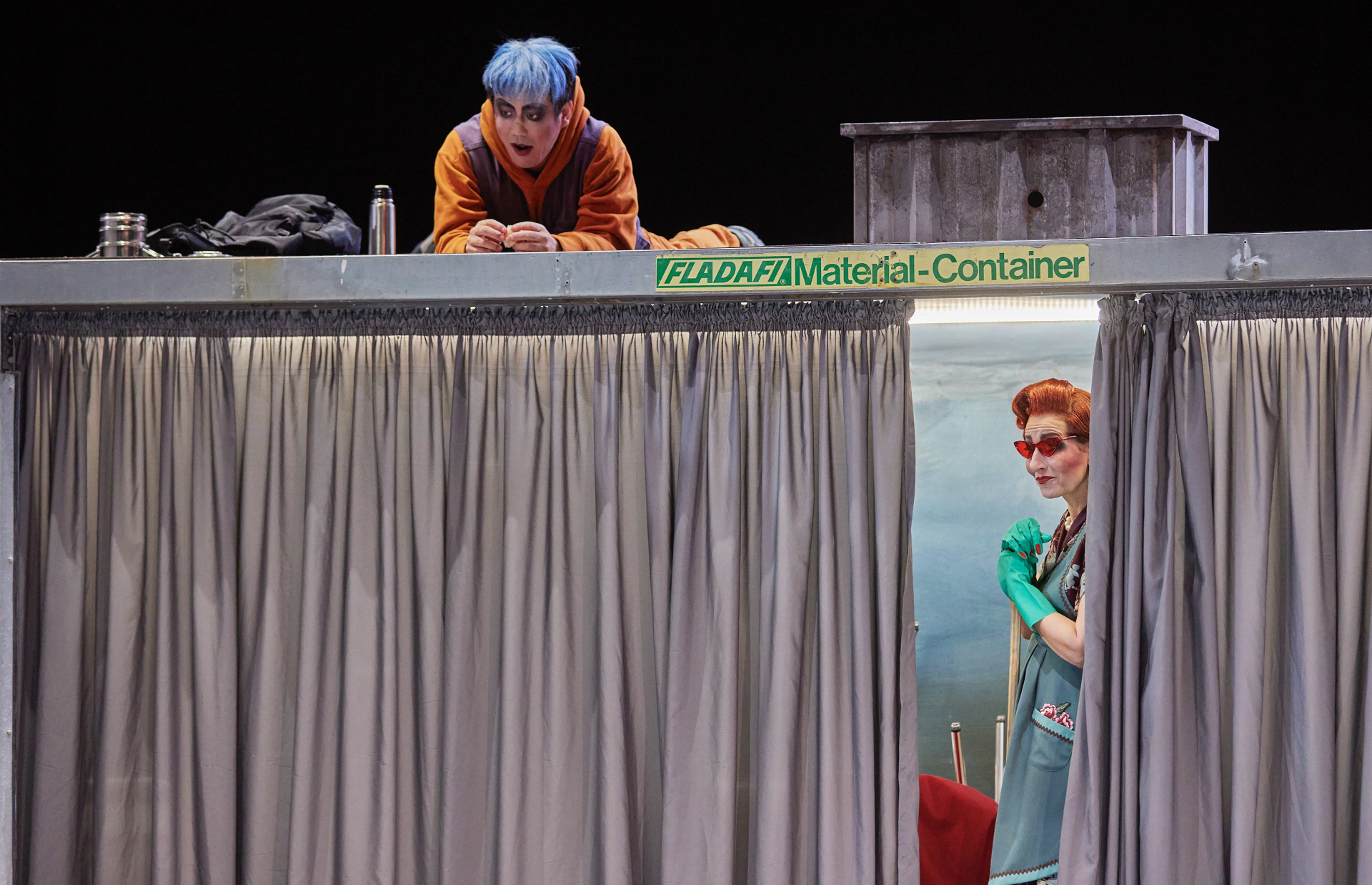
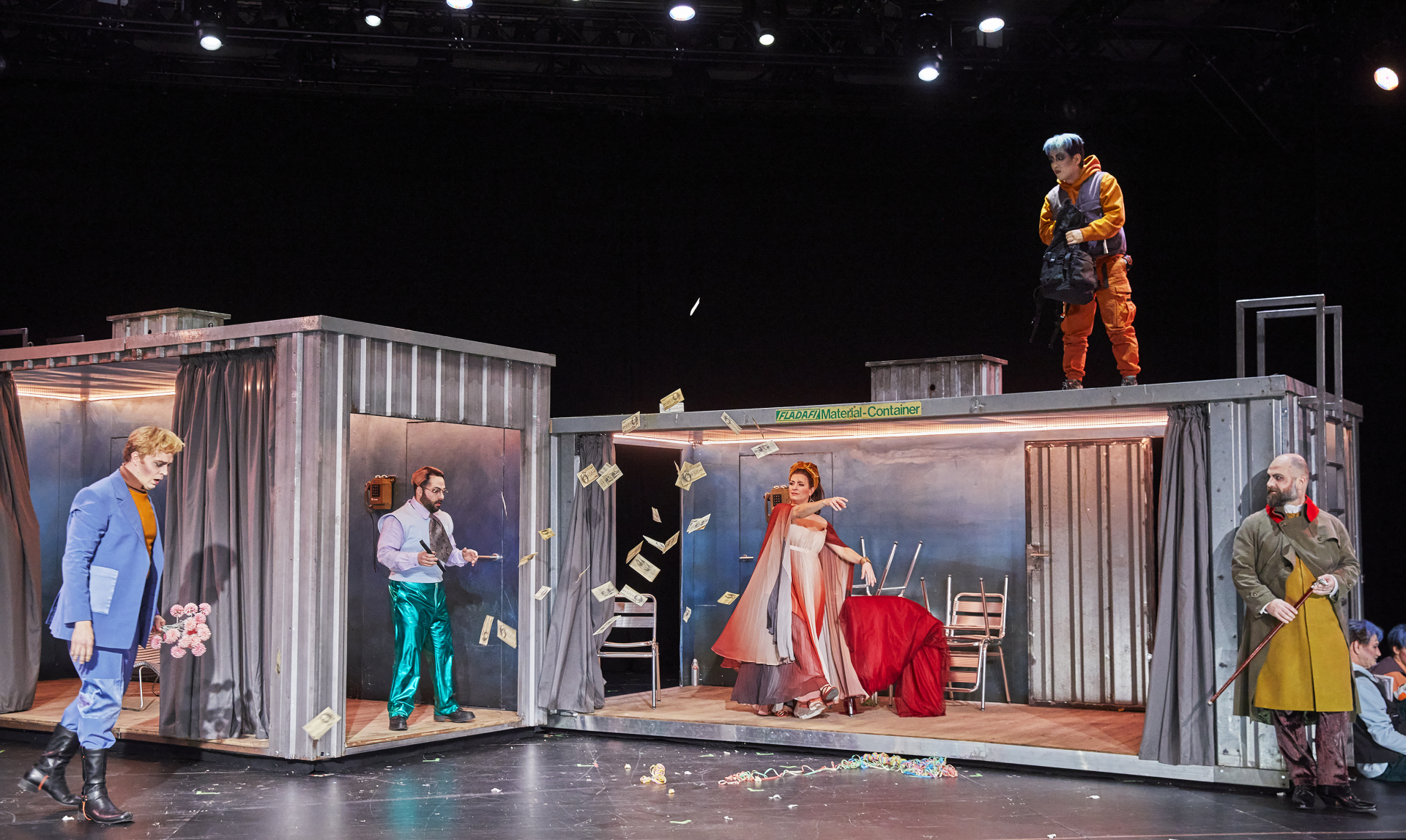

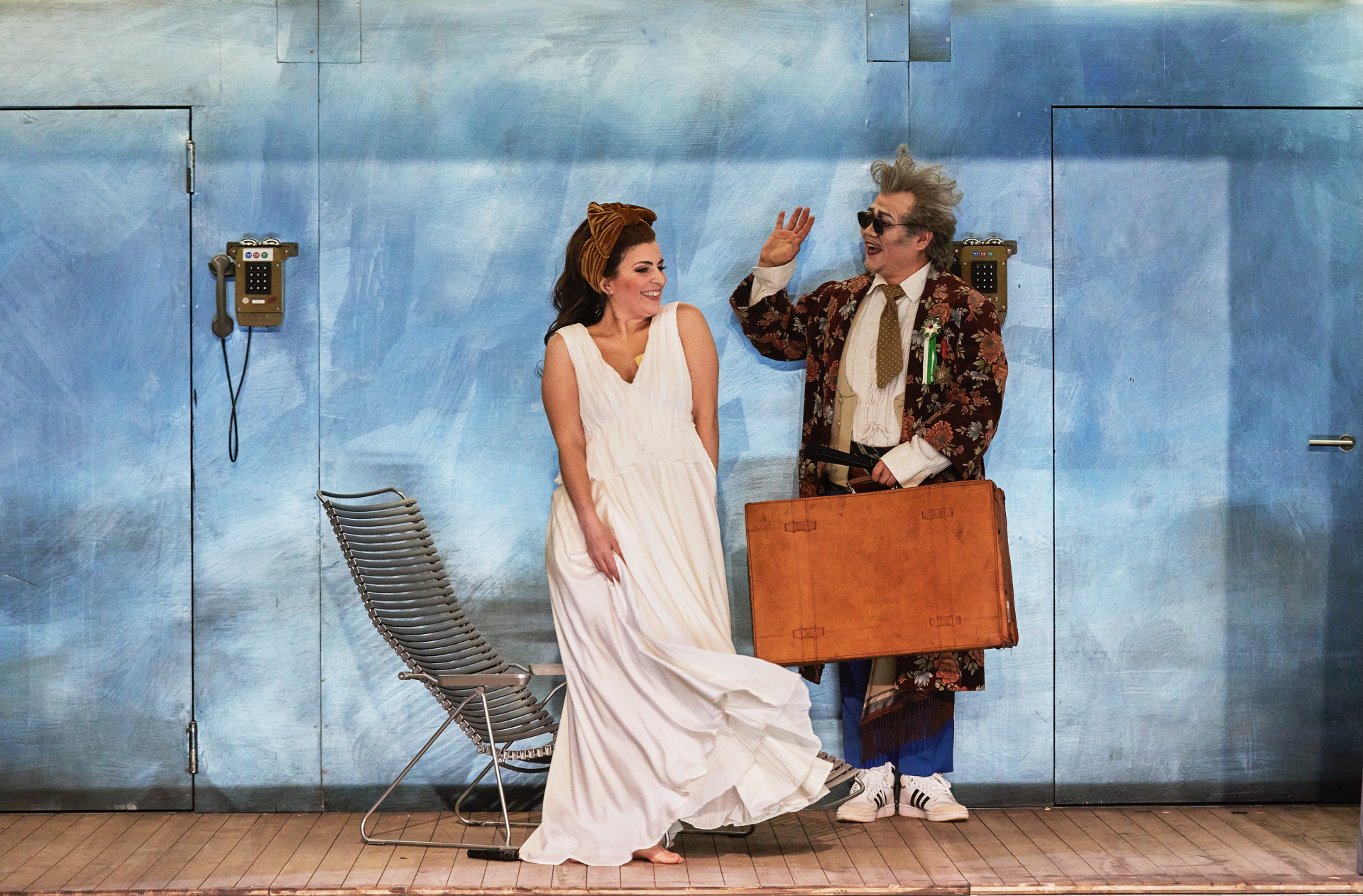

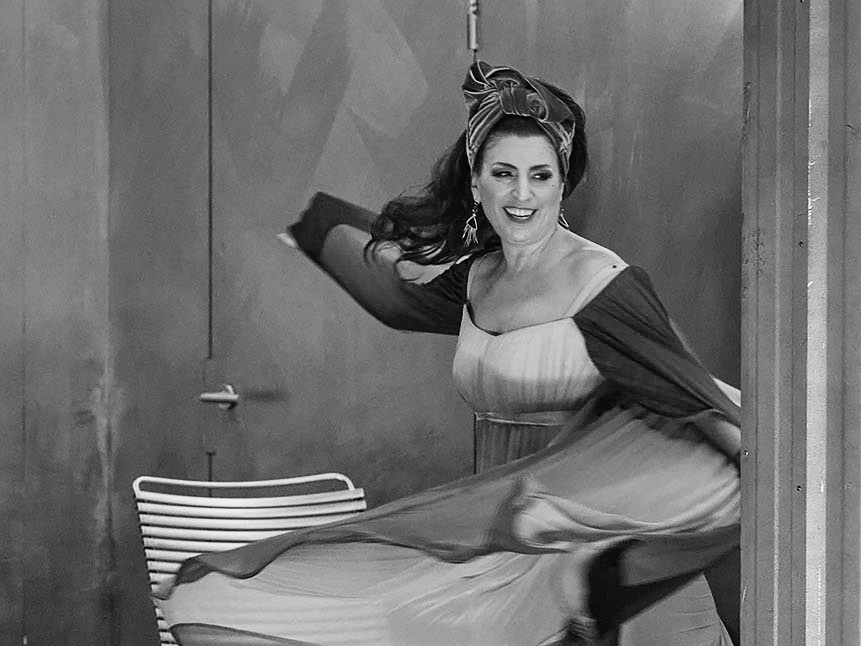
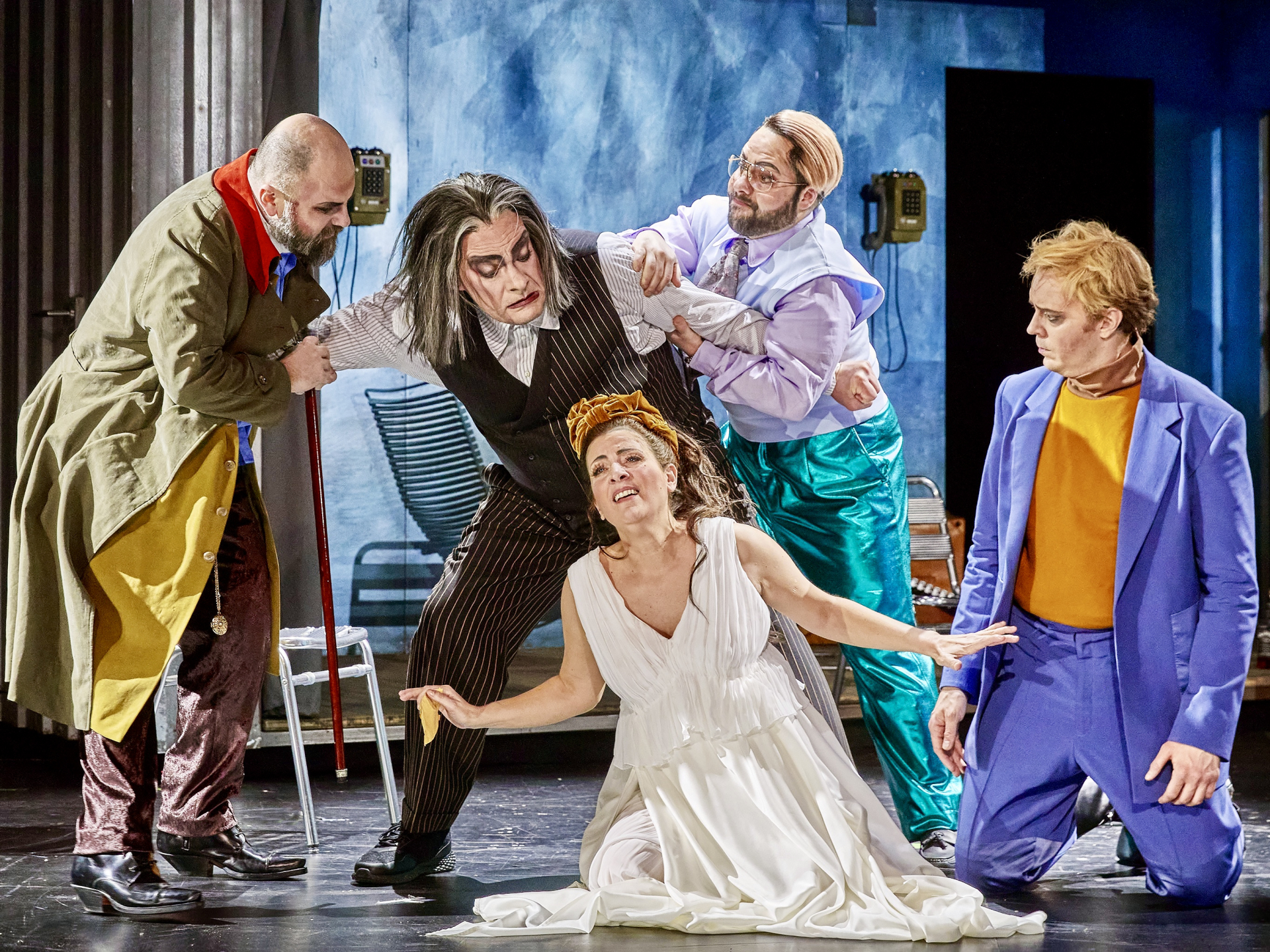
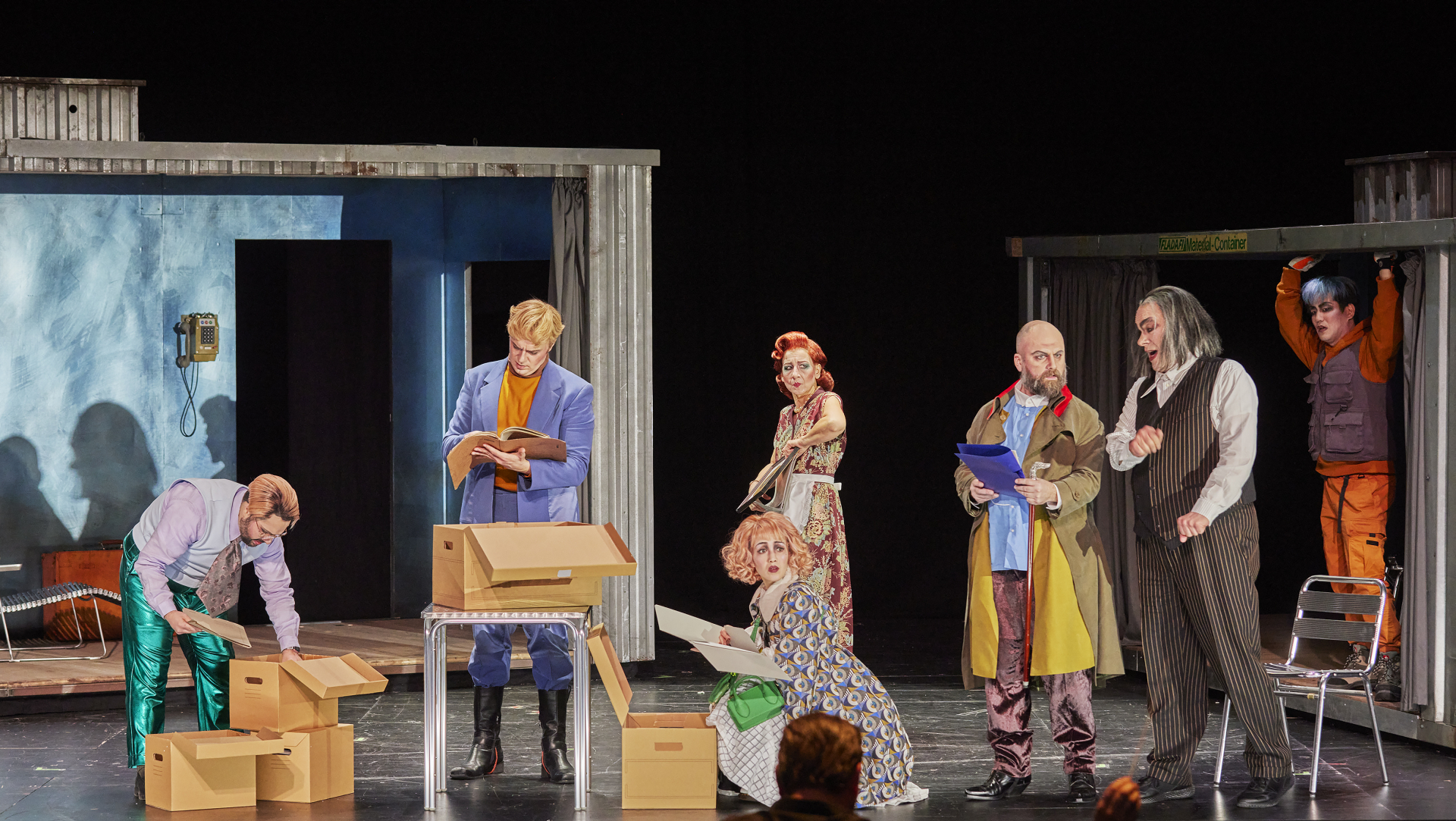


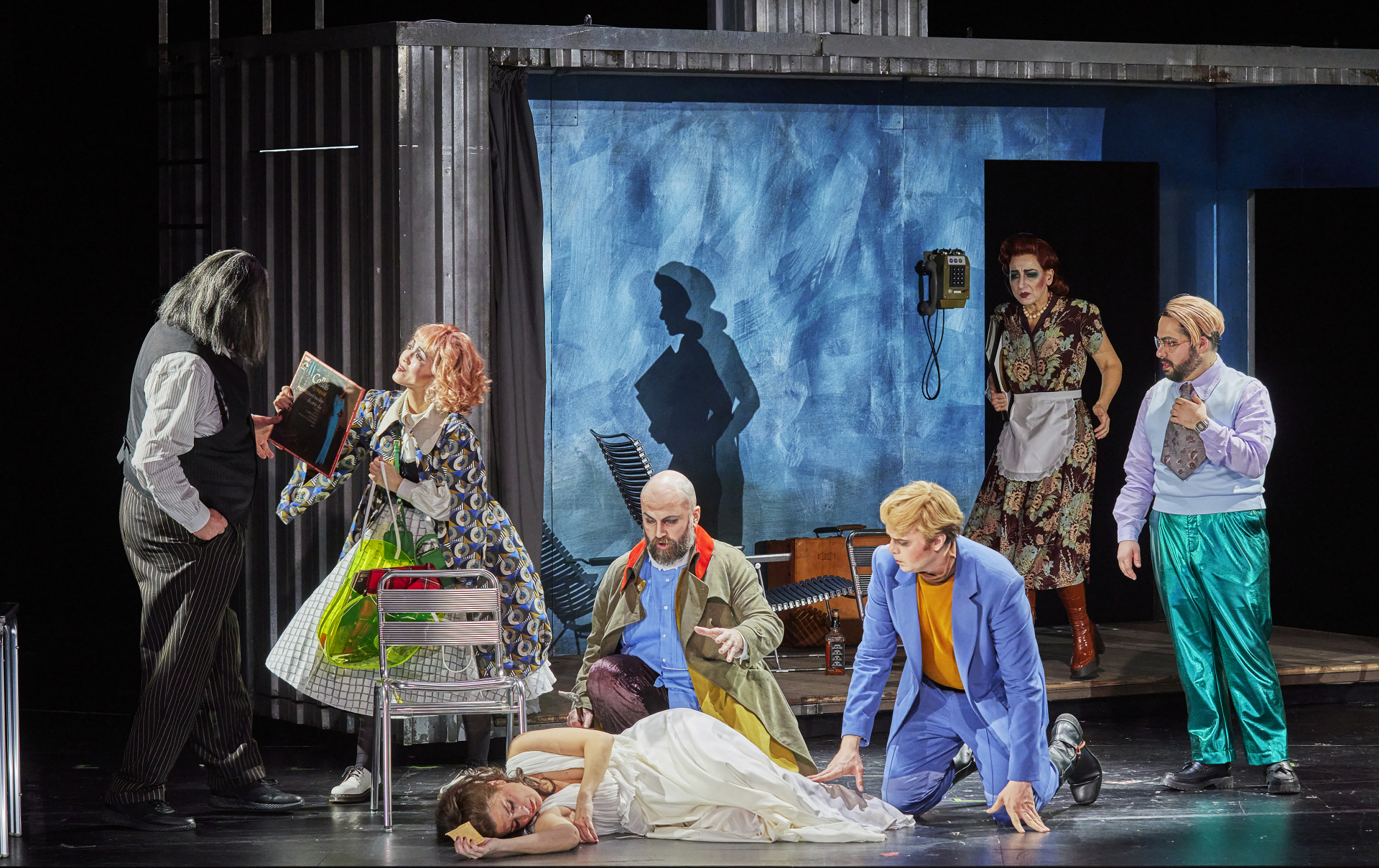
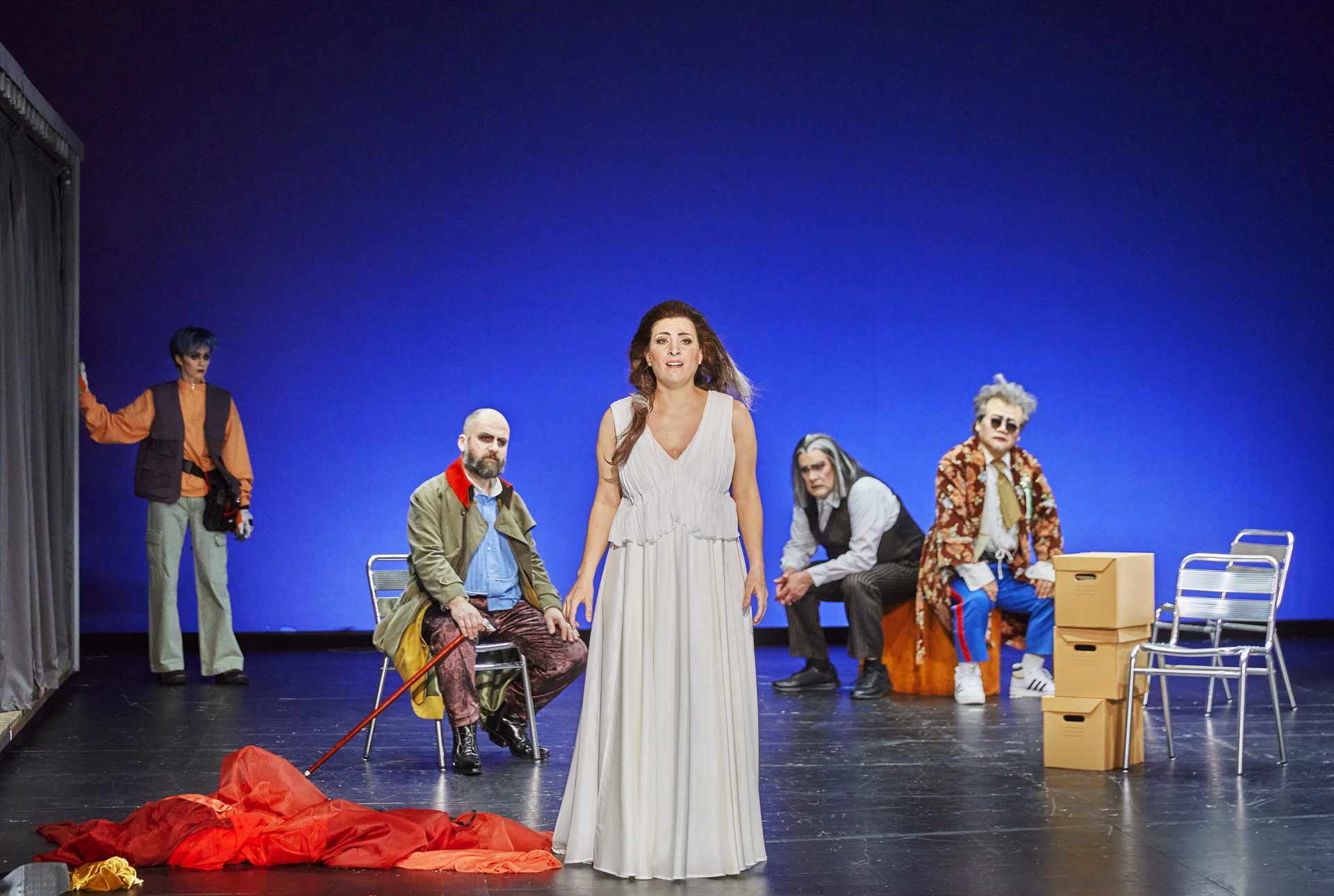
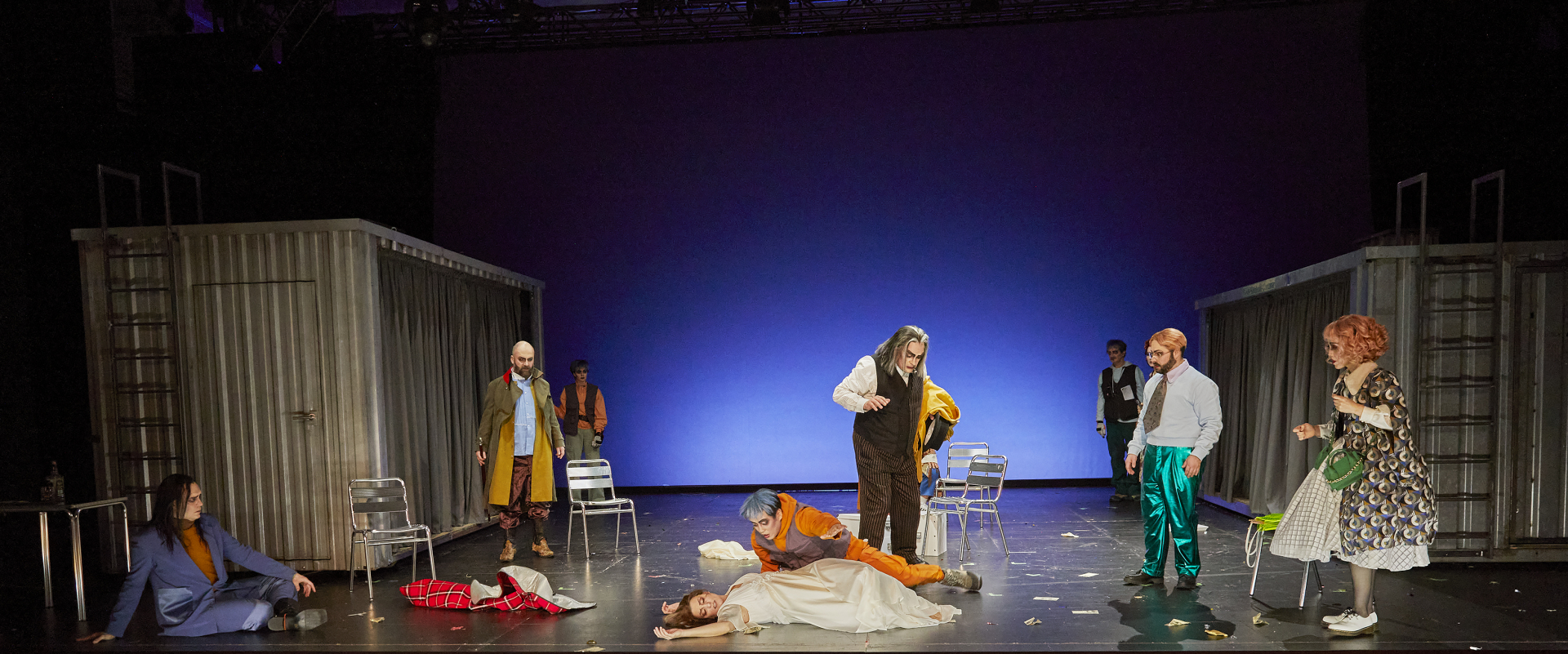
«No one survives life.»
This quote from the play "Greed" by the celebrated British contemporary playwright Sarah Kane, who died young, also sums up a central message of Leoš Janáček's "The Makropulos Affair". Overcoming the finite nature of life, or at least wanting to prolong it, is an age-old ambition of humanity. But so far the observation remains true that no one survives life. Even though the life of the protagonist Elina Makropulos has already lasted 337 years and she finally actually gets the recipe of the life-prolonging elixir, we witness her dying. As soon as she holds the precious document in her hands, the search for which kept her alive, the prospect of another 300 Earth years kills her.
Only a short time ago, we would have seen the relevance of the "Makropulos affair" in the aspect of overcoming disease and aging in stages and in the constant expansion of what is possible through medicine. Now, however, due to the pandemic, we are all suddenly confronted again with decreasing life expectancy and increasing mortality, with the fragility of life and the limits of medicine. In view of the daily summation of illness and death figures in the media, we are immediately confronted with the question of how to deal with illness, how to accept death. It is already being prophesied that the pandemic will put the brakes on society's belief in progress. It has caught us cold, this pandemic, and the more absurd the topicality of the play becomes, the more Elina Makropulos' experience will make us think (or wonder): In her great final monologue, she philosophizes about the meaning of life and expresses the thought that the inevitability of the end is precisely the meaningful fulfillment of life. This makes every minute precious.
As a director, I am attracted by the chamber-play-like structure of "Makropulos' Case," which allows the bizarre characters, who are trapped in their own worlds and concerns, to emerge in a psychologically differentiated way. Most of them are concerned with more prosaic questions than the finiteness of existence: in the context of the endless inheritance dispute, which is the starting point of the play, it is about money, fame, power, love. This conversation piece is full of tempo, pretending and lying, manipulating and arguing. And despite the dialogic structure, everyone seems to be stuck in a monologue. The entangled family relationships and not least the confusing, fascinating and changeable main character himself contribute to the psychologically highly complex and pleasurable constellation of characters. A detailed and subtle direction of the characters is not only a claim of the director, but a necessity for the orientation of the ensemble of singers and the audience.
Only in the final showdown, in the resolution of the Makropulos Affair, do all parties unite and reconcile in the horror of the effects of the blatant experiment on living human beings, that Hieronymus Makropulos perpetrated on his daughter by order of the Habsburg Emperor Rudolf II. Elina is a victim of Rudolf's insane ambition to challenge creation; an abuse that left internal and external scars. For the interwar period, as the era of the play's premiere, this is a gruesome foreshadowing of actual crimes that were to follow.
A field of tension in the life of the protagonist became the important starting point of our conception as well as spatial realization of the opera: As a famous singer and public figure, as a creature who does not age and who always has to acquire new identities, in Elina Makropulos the outward appearance, the facade contrasts strongly with her fragile inner life. Thus her world has a cold, hard, cynical, repellent surface, while she is wounded in the intimate, seeking warmth and closeness, possessing sensitivity and gentleness. We want to make these contrasts visible and tangible in the stage design and lighting concept. We situate the piece in its own timeless world, which is meant to emphasize the experimental, Kafkaesque and visionary aspects of the work while leaving room for interpretation: Is it a science fiction story all its own, an explosive thought experiment with a pull, the abysmal life story of a woman?
Statement of the director Nina Russi in the program booklet
